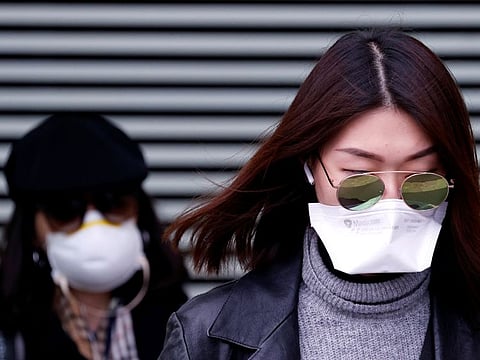Coronavirus: What do people do during lockdowns
Citizens in region to share their experiences of getting endless ‘free time’

Beirut: The governments of most coronavirus-hit countries have imposed home lockdowns and strongly instructed citizens to practice social distancing in a desperate bid to limit the pandemic outbreak.
Almost all citizens have suddenly found themselves prohibited from going to work or socialising like they normally do, and found that their lives have been turned upside down as regional governments imposed unprecedented restrictions that were almost like declaration of a state of emergency.
People found themselves stuck with endless free time, not knowing what to do to during home isolations.
Authorities are only permitting people to exit their houses for emergencies like quick shopping from supermarkets and pharmacies or visiting hospitals.
Gulf News interviewed a cross-section of locked-down citizens in the region to share their experiences in how they spend their lockdown hours at home.
Lebanese businesswoman and yoga practitioner Maya Ebrahim said she has turned her balcony into a mini gym where she self mediates and practices yoga twice a day. “Once the World Health Organisation declared it a pandemic, I stopped socialising and isolated myself with my brother. We order everything online and do not have to leave the house except to the pharmacy or supermarket. My father has a huge library … I have been reading a lot lately. I work on my projects from home … my brother just goes to the ATM to withdraw cash to use or we use our bankcards to pay for goods,” she said from her Beirut home.
Based in Antibes, France Naji Arbid has been isolated for 10 days now.
He goes out for groceries or pharmaceuticals with full protection gear like gloves and facemask.
“We have been instructed by our Government not to go outside except for urgent reasons, like going to the hospital, drugstore or supermarket. We will remain in isolation for around 45 days. In my lockdown, I occupy myself with drawing, reading, gardening, eating and watching movies. I also exercise to keep in shape, and communicate with my family abroad,” he said.
Based in Barcelona for three years now, Lebanese photographer Moe Shamseddine started practicing social distancing two weeks ago when the coronavirus started spreading very fast. Shamseddine decided to self-isolate himself and limit his outings to purchasing goods or visiting the pharmacy. “Staying at home during the lockdown in Spain is a good thing. It gives me more time to do things that I wanted to do. Since I know a lot of friends and family members, who are under lockdown in different countries, this gave me the chance to connect with everyone through video calls. The lockdown has a “familiar” feel to it, even though you’re not physically with your closed ones, you are virtually,” said Shamseddine, who has more time to work on his online photography projects.
He works out at home for 30 minutes daily besides watching his childhood cartoons, series, sitcoms and movies.
From inside her home at the West Bank, Palestinian Hanin Sharif believes that home lockdown due to corona came to suit her perfectly well. An Environment Project Coordinator, Hanin starts working from home at 9am daily. “I have been doing so for some time now. Basically, I work from home, since I’m a project coordinator, there is no need for field visits. My classes are still in progress … we have online classes that will start next Saturday (postgraduate studies). I already have my own online business, so it’s the perfect time to improve my work as well,” she told Gulf News.
As for family connections, Hanin’s family meets every couple of days. “But not all the family members get together. So you can say that I have a full working day including office work, my thesis, master’s classes and my own business,” she concluded.
Jordanian journalist Farah Atyyat said she has been working from home since the Jordanian cabinet decided to suspend printing of all newspapers. “The digital operation continues. Citizens have been instructed not to leave their houses except in extreme cases. This is considered a type of home isolation, which is applied on me and my brothers and sisters as well. Currently, we don’t leave home except when we need to buy the necessary goods such as food … at home we are using all types of sterilisers and disinfectants to clean the house, our hands and others stuff,” said Farah who spends most of her free time reading or on social media.
The coronavirus-imposed isolation and social distancing, according to Farah, is a great opportunity to spend more ‘intimate family time’.
Speaking to Gulf News from her Istanbul flat, American researcher Suzanne Alaris said they do not leave home except for ‘quick and short’ panic trips to the supermarket to buy groceries and hygiene items. She and her husband have not started wearing facemasks yet, but only gloves since they use hand sanitisers.
“Since I don’t drive I only have to worry about sanitizing my hands after shopping. We visit pharmacies to buy rubbing alcohol and masks just in case someone gets sick. I’m basically home bound since work is now online and from home but planning on walking outside a bit while shopping so I can get some fresh air. We have got more time for online games and watching Netflix,” she said.







